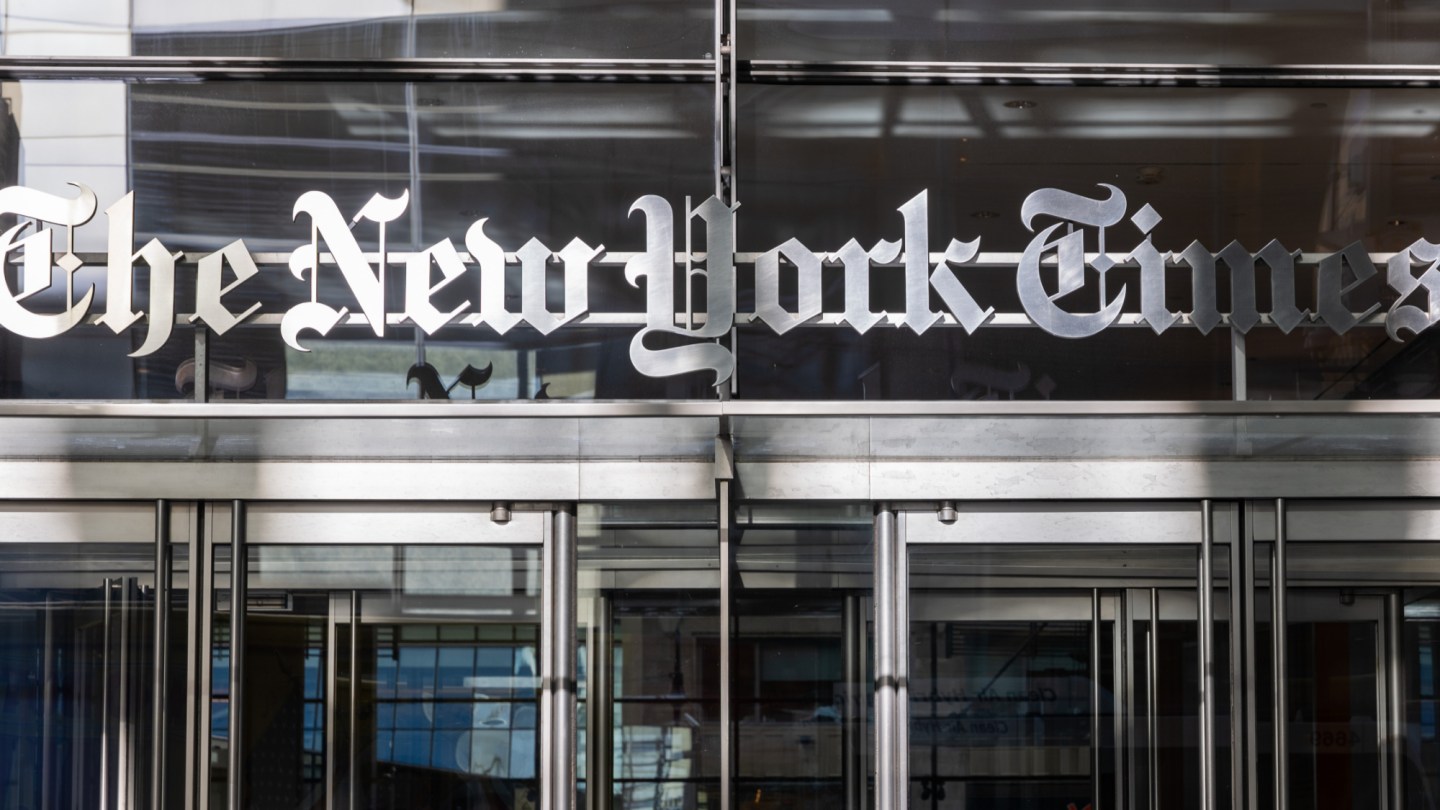A federal judge has rebuffed OpenAI‘s bid to dismiss a copyright lawsuit brought by The New York Times accusing the tech company of mass theft for using the publication’s content to train its AI system without consent or compensation.
U.S. District Judge Sidney Stein on Wednesday advanced the Times‘ core claims related to copyright infringement while narrowing the scope of the case. She said she will issue a ruling “expeditiously.”
With the decision, the publication clears a key hurdle in the case as it seeks an answer on fair use — a critical question in AI cases that asks whether the use of copyrighted material to train AI systems without a license is permitted.
The publication filed the lawsuit in 2023 after an impasse in negotiations with OpenAI and Microsoft over a deal that’d resolve concerns around the use of its articles to train automated chatbots. The Times, after the highly publicized releases of ChatGPT and BingChat, notified the companies that their tech infringed on its articles. The terms of a resolution involved a licensing agreement and the institution of guardrails around generative artificial intelligence tools, though the talks reached no such truce.
The lawsuit, which was followed by other news outlets suing OpenAI, could have far-reaching implications on the news publishing industry. Potentially at stake: The financial viability of media in a landscape in which readers can bypass direct sources in favor of search results generated by AI tools. Depending on the decisions in cases brought by publications, OpenAI could be cornered into accepting pricey licensing deals.
In its complaint, the Times presented extensive evidence of products from OpenAI and Microsoft displaying near word-for-word excerpts of articles when prompted, allowing users to get around the paywall. These responses, the Times argued, go far beyond the snippets of texts typically shown with ordinary search results. One example: Bing Chat copied all but two of the first 396 words of its 2023 article “The Secrets Hamas knew about Israel’s Military.” An exhibit showed 100 other situations in which OpenAI’s GPT was trained on and memorized articles from The Times, with word-for-word copying in red and differences in black.
Following the lawsuit, OpenAI made changes so that its chatbot doesn’t provide verbatim copies of articles.
The Times‘ decision to sue tech companies stands in contrast to other publications that’ve opted to accept licensing deals, including News Corp, the owner of The Wall Street Journal and New York Post, and The New Yorker owner Condé Nast. Dotdash Meredith disclosed quarterly earnings report last year that payments from its OpenAI licensing deal amounted to $16 million annually. News Corp has framed its deal with the Sam Altman-led firm as advancing its interests in media.
As the legal battle plays out, the Times disclosed earlier this year that it spent $10.8 million on costs associated with generative artificial intelligence litigation in 2024, according to its quarterly earnings filing.
A finding of infringement could result in massive damages since the statutory maximum for each willful violation runs up to $150,000. The lawsuit advanced claims for copyright infringement, contributory copyright infringement, trademark dilution. Tuesday’s ruling dismissed claims of unfair competition and a violation of the Digital Millennium Copyright Act “with prejudice,” meaning they cannot be reasserted.
